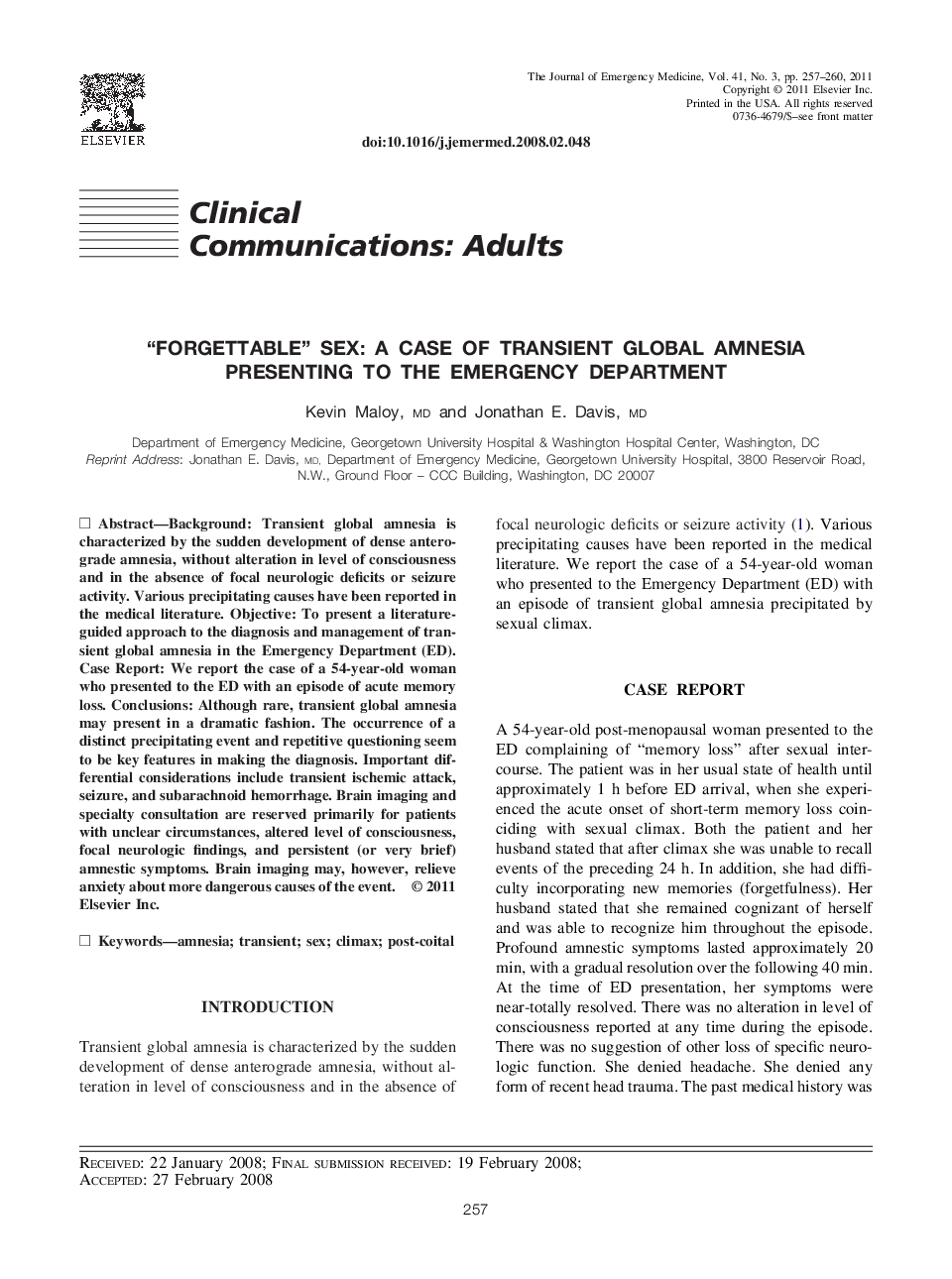| Article ID | Journal | Published Year | Pages | File Type |
|---|---|---|---|---|
| 3247846 | The Journal of Emergency Medicine | 2011 | 4 Pages |
Background: Transient global amnesia is characterized by the sudden development of dense anterograde amnesia, without alteration in level of consciousness and in the absence of focal neurologic deficits or seizure activity. Various precipitating causes have been reported in the medical literature. Objective: To present a literature-guided approach to the diagnosis and management of transient global amnesia in the Emergency Department (ED). Case Report: We report the case of a 54-year-old woman who presented to the ED with an episode of acute memory loss. Conclusions: Although rare, transient global amnesia may present in a dramatic fashion. The occurrence of a distinct precipitating event and repetitive questioning seem to be key features in making the diagnosis. Important differential considerations include transient ischemic attack, seizure, and subarachnoid hemorrhage. Brain imaging and specialty consultation are reserved primarily for patients with unclear circumstances, altered level of consciousness, focal neurologic findings, and persistent (or very brief) amnestic symptoms. Brain imaging may, however, relieve anxiety about more dangerous causes of the event.
